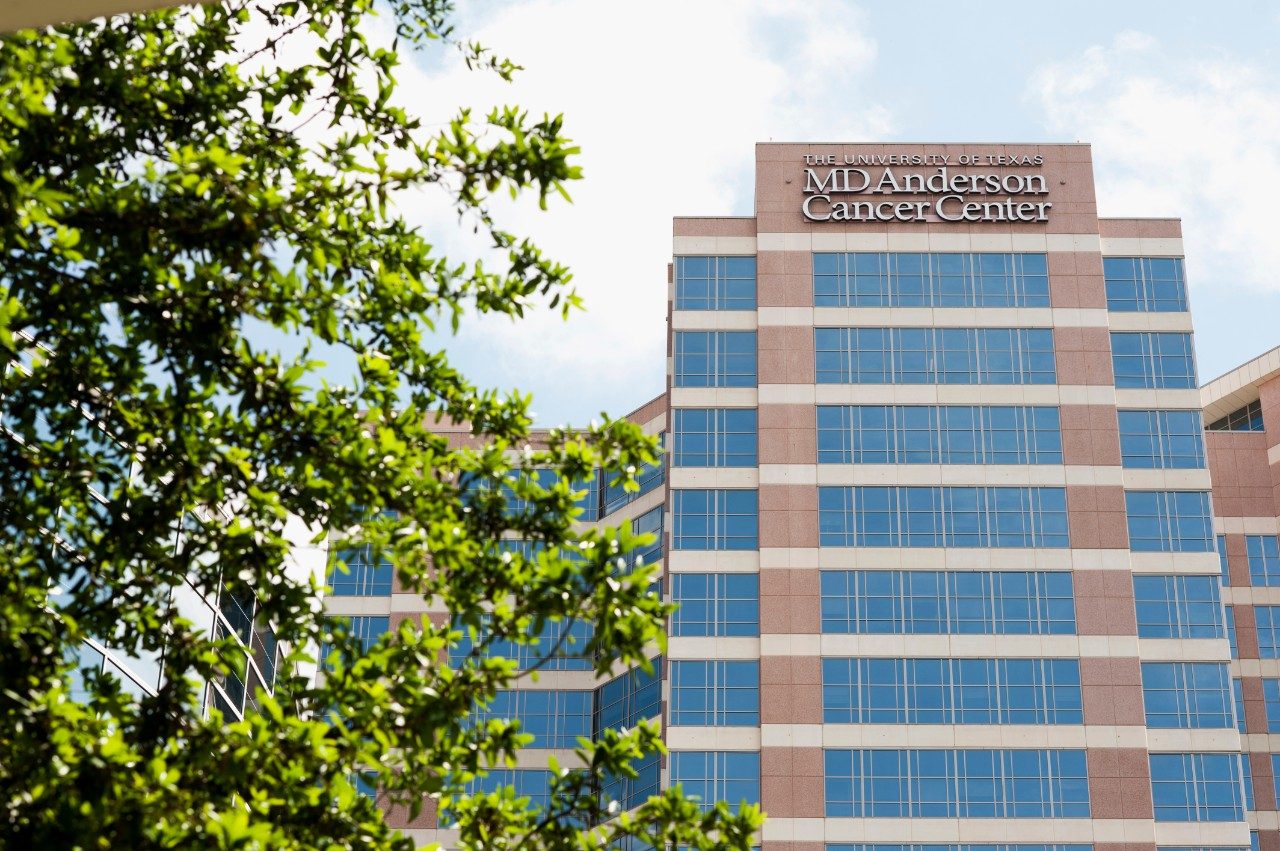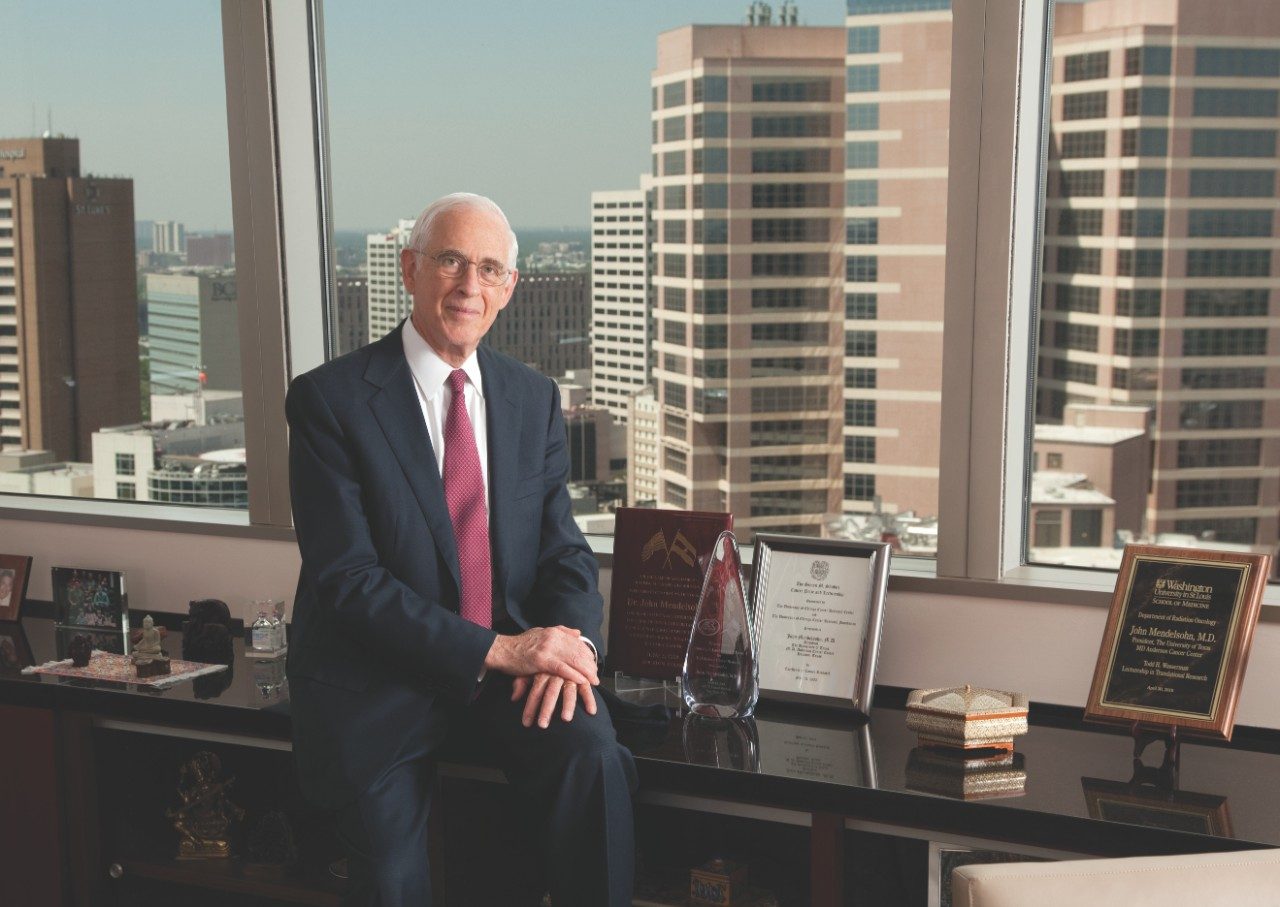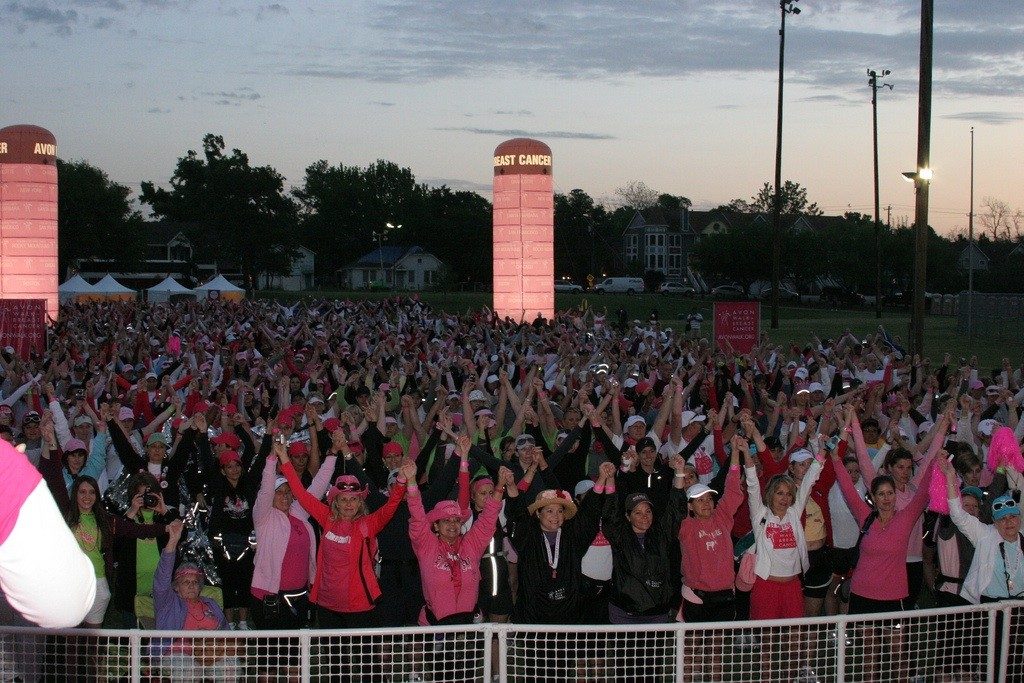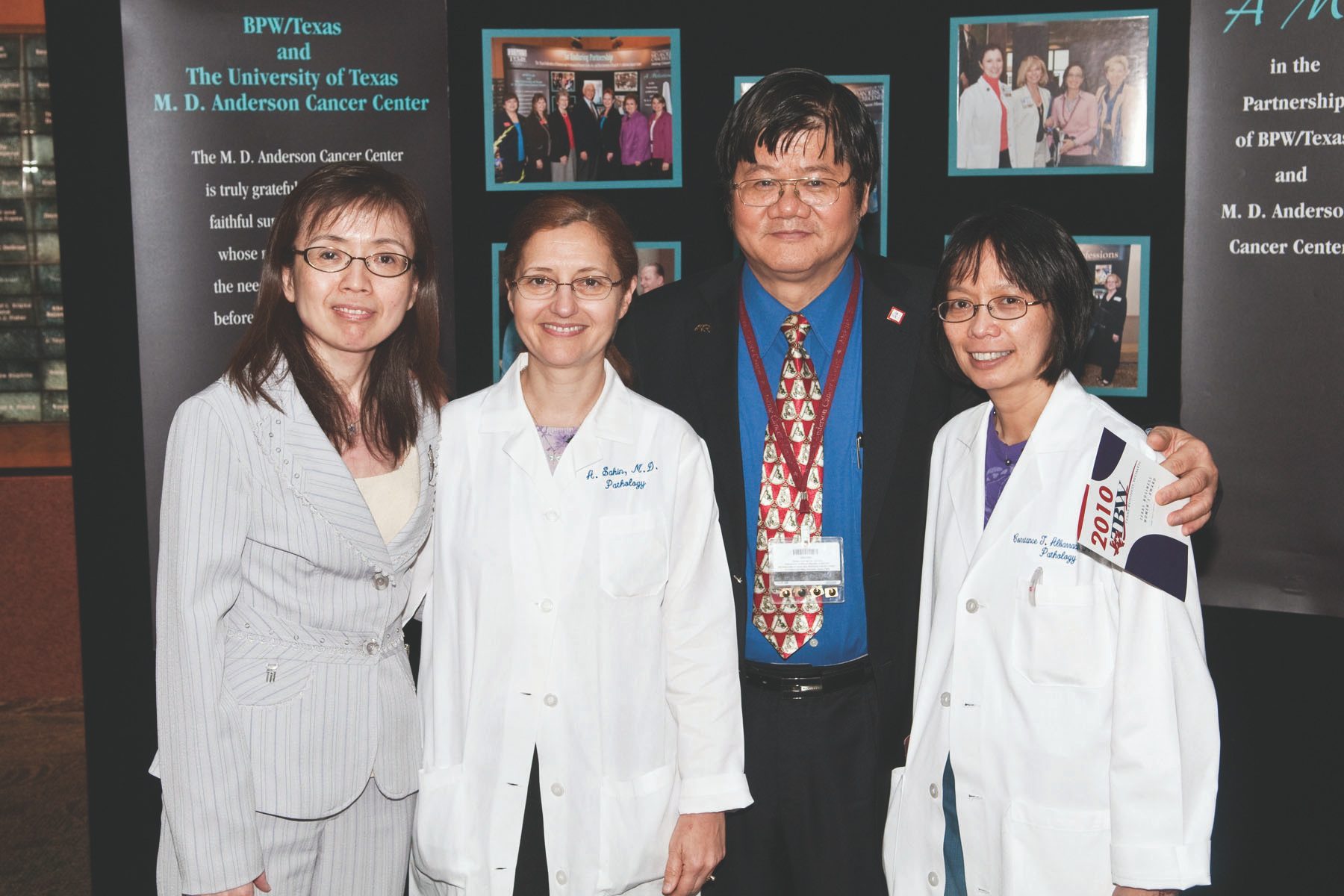On Cancer Journey Together, Couple Makes Path Easier for Others
Since his diagnosis in October 2009 of inoperable lung cancer, Ron Stading has sent weekly e-mails sharing medical updates, memories and inspirational musings with many friends, family and associates. The online journal helps Stading, a nonsmoker who has otherwise enjoyed good health throughout his 63 years, deal with the physical and emotional challenges of adenocarcinoma, a type of non-small cell lung cancer. It also provides hope and inspiration for readers or their loved ones on their own cancer journeys.
Borrowing a popular anonymous quote, he writes in an early post: Life isn’t about waiting for the storm to pass. It’s about learning to dance in the rain.
The words have become a mantra for Stading and his wife, Tycha, who was diagnosed in 2007 with advanced breast cancer. Inspired by the care and expertise they’ve collectively received over the past three years, the couple has made a generous commitment to support lung cancer and breast cancer research at MD Anderson.
“We love everything about MD Anderson,” says Tycha, a retired teacher. “We wish we could give more.”
Supporting the work of their doctors, Daniel J. Booser, M.D., a professor in the Department of Breast Medical Oncology, and Edward S. Kim, M.D., an associate professor in MD Anderson’s Department of Thoracic/Head and Neck Medical Oncology, the Stadings want to help other patients by funding efforts in personalized cancer therapy that can have a direct, immediate benefit.
One focus of the Stadings’ gift is the purchase of a gene sequencer dedicated to identifying molecular markers in the tumors of lung cancer patients. Armed with this information, Kim and colleagues can plan personalized therapies that target these markers for greater efficacy. The Stadings’ purchase will provide immediate help for hundreds of patients.
“The Stadings’ generosity has allowed our research in lung cancer to go to the next level in personalized cancer care,” says Kim, principal investigator for an innovative set of clinical trials called BATTLE (Biomarker-integrated Approaches of Targeted Therapy for Lung Cancer Elimination). “The research generated from this technology will facilitate collaborations that will help us fight the BATTLE against lung cancer. It’s truly a game changer for us.”
The couple also plans to fund similar equipment for the Department of Breast Medical Oncology that will help clinicians individualize and customize therapies for breast cancer patients. Impressed by the care his wife had received at MD Anderson, Stading joined MD Anderson’s advisory board, The University Cancer Foundation Board of Visitors (BOV), in September 2009. He received his diagnosis on Oct. 14. Two weeks later, during the BOV’s annual meeting at MD Anderson, Stading looked past his shock to seize an opportunity.
“It’s good to know that not only are our gifts helping other lung cancer and breast cancer patients right now, but also that MD Anderson can leverage our dollars as seed money toward large research grants with lasting, long-term potential,” he says.
Life is like an echo, reads another e-mail post from Stading. What you send out comes back to you.
Cancer Survivor and Wife Say ‘Thanks a Million’ to Oncology Team
Pharmaceutical consultant Charles Stiefel says he owes his life to MD Anderson. In gratitude for the care he received as a squamous cell carcinoma and thyroid cancer patient, Stiefel and his wife, Daneen, have pledged $1 million to establish the Charles and Daneen Stiefel Chair in Cancer Research.
The gift is a tribute to Stiefel’s medical oncologist, Merrill S. Kies, M.D., professor in the Department of Thoracic/Head and Neck Medical Oncology; his radiation oncologist, David I. Rosenthal, M.D., section chief, Head and Neck, Division of Radiation Oncology; and his surgeon, Randal S. Weber, M.D., chair of the Department of Head and Neck Surgery, “I wanted to honor and thank them, and to give back to MD Anderson,” says Stiefel, 59. “We’re the ones who received the gift. Those three amazing doctors saved my life.”
Diagnosed in Miami in 2006 with a squamous cell carcinoma at the base of his tongue, Stiefel sought care at MD Anderson after a physician friend insisted it was his best option. “We instantly fell in love with the institution,” he says. “It’s warm and inviting, and everyone we met was wonderful. My doctors went above and beyond the call of duty.”
Though life is good now, it wasn’t always easy along the road to recovery via radiation, chemotherapy and surgery at MD Anderson, says Daneen.
“Charles hit every speed bump possible,” she says.
Certainly not the least of those was the detection of thyroid cancer during what the couple thought was his final checkup. An ultrasound revealed that, while the carcinoma appeared to be gone, there was a tumor on his papillary thyroid gland. The cancer was eliminated through surgery.
“Fortunately, it’s the most easily treatable of thyroid cancers,” says Stiefel, former chair and CEO of Stiefel Laboratories, a pharmaceutical company specializing in dermatological products. The company had been in his family for six generations until it was sold in July 2009 to GlaxoSmithKline.
Now living in semi-retirement in their new home in Raleigh, N.C., the Stiefels celebrated Charles’ third cancer-free anniversary in April.
“Life is perfect,” says Daneen, who enjoys traveling with her husband and spending time with their two children and four grandchildren. “Without Dr. Kies, Dr. Rosenthal and Dr. Weber, my husband wouldn’t be here. Our family is very beholden to them for their compassion, concern and care.”
Teak Tree Farm Bears Fruit in Planned Gift
They say money doesn’t grow on trees. A couple of years ago one smart investor found a creative way to prove the old adage wrong.
Retired Exxon geophysicist Lewis A. Lester, of Houston, established a charitable gift annuity with proceeds from the sale of a teak tree farm in Costa Rica. Through his will, he’s directed the principal to fund chronic lymphocytic leukemia research at MD Anderson under the direction of Michael Keating, M.B., B.S., professor in the Department of Leukemia.
A charitable gift annuity, which can be made to the institution in cash or stock, offers the donor an income tax deduction and fixed payments, partly tax-free, for life.
Lester set up the annuity to honor the memory of his wife, Diana, an MD Anderson patient who died in 2005 of mesothelioma, and to help improve outcomes for future patients.
Keating became Diana’s oncologist when her leukemia presented three years after her first diagnosis in 1968, of ovarian cancer, also treated at MD Anderson.
“My wife and I discussed the importance of supporting research at the institution,” says Lester. “Through the charitable gift annuity, I can do just that.”
Lester, a melanoma survivor, says a brochure he read in an MD Anderson waiting room armed him with lifesaving information.
Thanks to early detection and prompt surgery by Frederick C. Ames, M.D., clinical professor of surgical oncology, Lester is cancer-free.
Lester’s 33-year career with Exxon took him from Venezuela to Argentina, where he met Diana, to Colorado, where they were married. From Colorado the couple moved to Libya and later settled in Lester's home state of Texas.
After retiring, the Lesters traveled extensively, with Houston as their base. During a visit to Costa Rica, Lester happened upon a presentation designed to interest locals in reforestation. Intrigued, the couple made some inquiries and soon found themselves the proud owners of 15 acres near Hojancha, in the province of Guanacaste.
Thus Lester became a tree farmer who never planted a tree. That job went to a nurseryman who nurtured the tender teak seedlings through a devastating drought. Eventually, the rains came, and the trees grew tall and straight, suitable for lumber. The endeavor lasted 17 years until Lester sold the property to the nurseryman’s son.
“Our family has been touched many times by cancer,” says Lester, who counts 13 cancer occurrences among 11 family members, including his parents. “Through the charitable gift annuity, I hope Dr. Keating and his colleagues can find better and faster ways of treating, and hopefully, curing leukemia.”
Cancer Proves No Competition for Polo Player
Brendan Fikes is an avid race car driver, inspired polo player and competitive business owner. He focuses on success. One competitor Fikes never imagined he would face, however, was cancer. That all changed in 2005.
“A few years ago, the left side of my neck began to swell,” says Fikes, of Midland. A friend, who is an orthopedic surgeon, recommended Fikes have the lump examined by an otolaryngologist. He followed that advice and was told it looked like cancer. At the encouragement of his friend Melinda Musselman, whom he’d met through his involvement with Polo on the Prairie, an MD Anderson fundraiser she and her family started more than 20 years ago, Fikes made an appointment at MD Anderson.
He was diagnosed with Hodgkin’s lymphoma, a type of cancer that typically manifests in the lymph nodes. With the help of an oncology team led by Larry W. Kwak, M.D., Ph.D., chair of MD Anderson’s Department of Lymphoma/Myeloma, Fikes faced this new challenge and completed his treatments in November 2005. Committed to following his family’s tradition of philanthropic support for medical research, he made a substantial donation to Hodgkin’s lymphoma research at MD Anderson. He’s also donated to the Children’s Art Project, the institution’s Annual Fund and Polo on the Prairie.
“An unfortunate fact of life is that a lot of people are going to get cancer,” says Fikes. “But with MD Anderson behind you, you really stand a chance of living through it and going on to see a lot more sunsets.”
Fikes recently joined the Advance Team, an advisory board launched in 2001 to enhance the institution’s commitment to excellence and future growth.
And as for the Musselmans? Fikes now refers to them as his in-laws. He married their daughter, Louisa, in July 2009.















